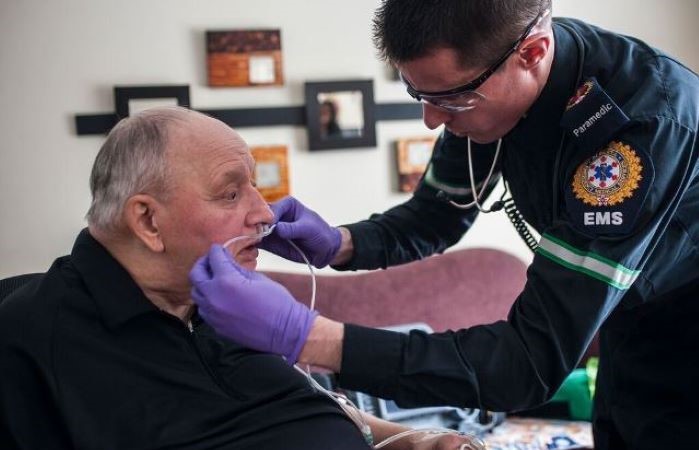CHEPA members to evaluate the economics of a Canadian paramedic-led model of palliative care in the home

A team of CHEPA members, Jean-Éric Tarride, Michel Grignon, Hsien Seow, Feng Xie and Gordon Blackhouse, has been selected by the Canadian Partnership Against Cancer (CPAC) to conduct an economic evaluation and a budget impact analysis of a program that trains paramedics to provide palliative care in the homes of Canadians requiring urgent palliative services.
A team of CHEPA members, Jean-Éric Tarride, Michel Grignon, Hsien Seow, Feng Xie and Gordon Blackhouse, has been selected by the Canadian Partnership Against Cancer (CPAC) to conduct an economic evaluation and a budget impact analysis of a program that trains paramedics to provide palliative care in the homes of Canadians requiring urgent palliative services.
The program, “Paramedics and Palliative care: bringing vital services to Canadians”, will run until spring, 2022. It is led by a partnership between CPAC and the Canadian Foundation for Healthcare Improvement (CFHI), which are jointly providing up to $5.5 million to expand access to paramedics trained in providing palliative and end-of-life care to people in their homes. Research shows that 86% of Canadians believe palliative care should be provided at home as much as possible.
The program was initially implemented in Nova Scotia and Prince Edward Island in 2014, and provided Emergency Medical Services (EMS) workers with enhanced resources and the training to treat patients’ palliative needs at home without transporting them to the hospital. The program, which also ran in Alberta, has shown promising results, including high levels of patients’ satisfaction, a reduction in hospital trips and a more efficient use of paramedics’ time on calls.
Based on this experience, and in collaboration with several provincial health authorities and organizations, CPAC and CFHI have expanded paramedic palliative care training to six other provinces (British Columbia, Saskatchewan, Manitoba, Ontario, New Brunswick and Newfoundland and Labrador). Overall, more than 5,000 paramedics are to be trained to provide palliative and end-of-life care at home in these six provinces over the period 2018-22. Learn more about the training program.
The economic evaluation and the associated budget impact analyses to be conducted by CHEPA members will provide evidence for the broader implementation in Canada of paramedic-led models of palliative care in the home compared to keeping the status quo (generally, transportation to the hospital following a 911 call).
NewsRelated News
News Listing

November 12, 2024

September 23, 2024

